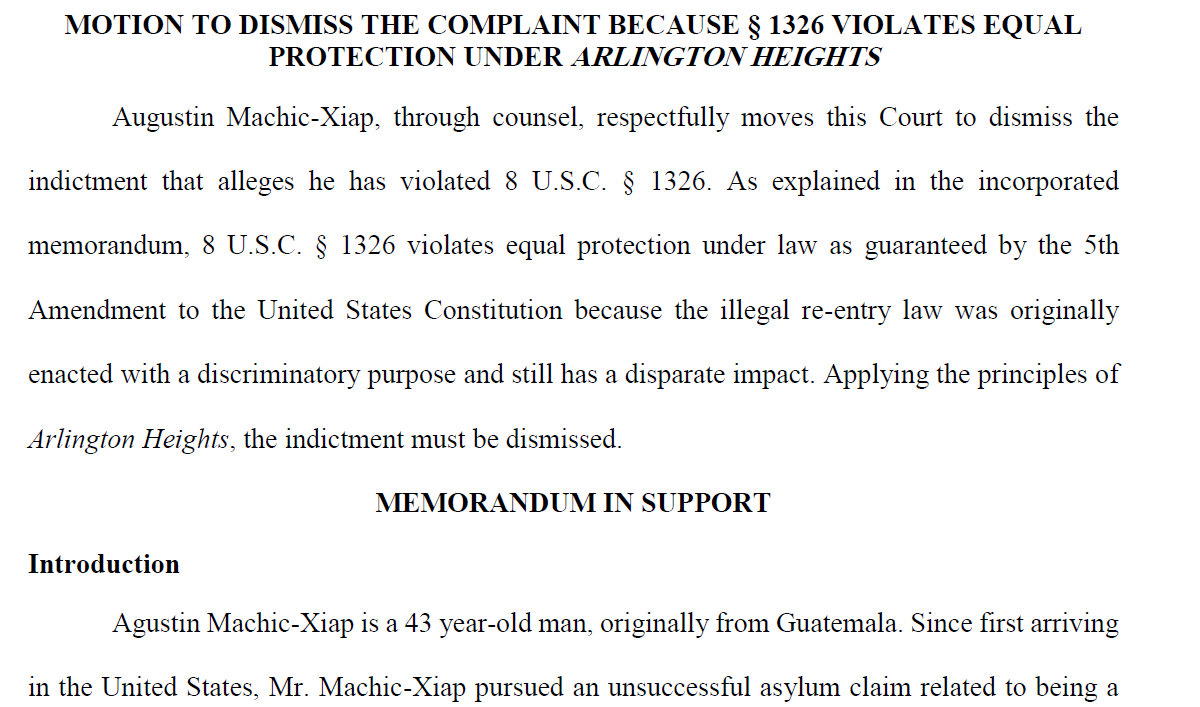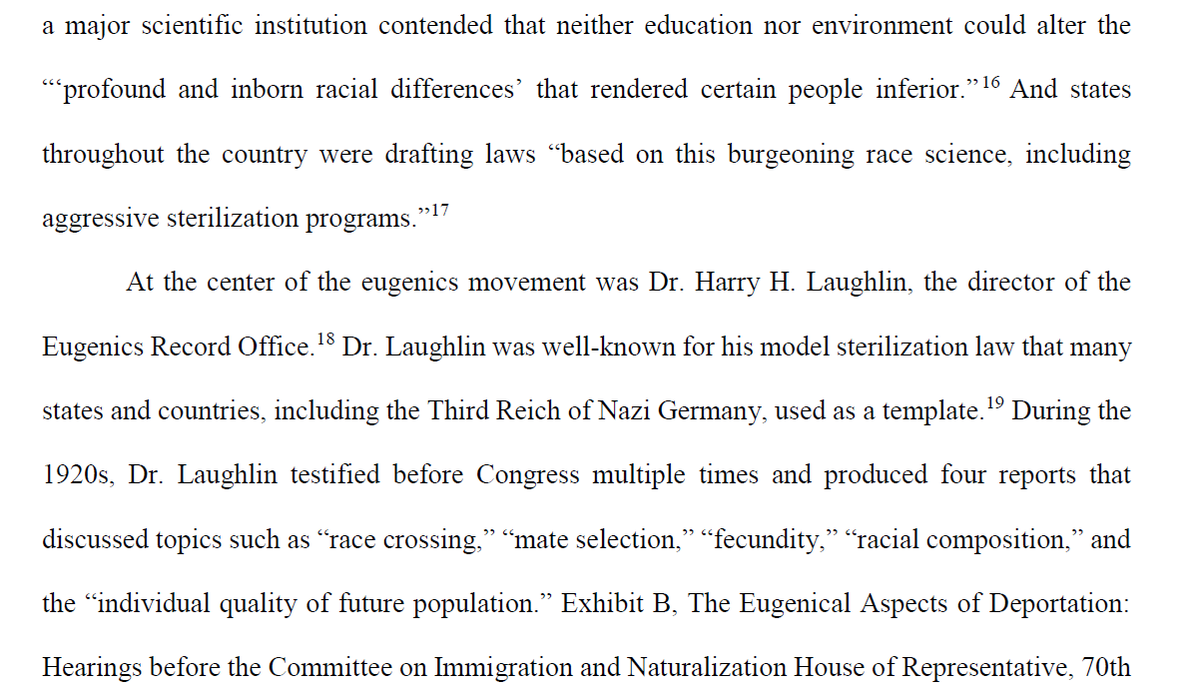
Today, there was a hearing in Oregon’s district court, challenging the constitutionality of §1326 (illegal reentry) arguing the law violates the 5th Amd b/c the law was originally enacted with a discriminatory purpose and still has a disparate impact (thread 1/12) 

.@NIJC released a report in July 2020 examining the history of the racist roots of migration prosecution laws and how they have fueled systems of mass incarceration (2/12) immigrantjustice.org/research-items…
Demands to repeal Sections 1325 and 1326 rose to prominence in the national press during the 2019 Democratic presidential primary debates, but rights advocates & communities have advocated for repeal of these provisions for decades (3/12) lawdigitalcommons.bc.edu/cgi/viewconten…
Today’s case, US v Machic-Xiap, addresses the terrifyingly racist roots of the statutes that first criminalized migration-laws that were first promoted by white supremacists & eugenicists in the early 20th century (4/12) propublica.org/article/behind…
The passage of the law was directly motivated by the eugenics movement, led at that time by Dr. Harry Laughlin, who was well known for his model sterilization law that Nazi Germany used as a template (5/12) historyofeugenics.truman.edu/altering-lives…
In the 1920s, Laughlin testified before Congress multiple times and produced reports that discussed topics such as “race crossing,” “mate selection,” “fecundity,” “racial composition,” and the “individual quality of future population” (6/12) 

Coleman Livingston Blease, a white supremacist Senator who supported lynching, introduced the “Undesirable Aliens Act of 1929” based on the belief that the “Mexican race” would destroy the "racial purity" of the US (7/12) cnn.com/2018/10/16/us/…
In debating and drafting the law, legislators claimed Mexicans were “poisoning the American citizen,” while the legislators sought to keep the country’s blood “white and purely Caucasian.” Senator Blease’s bill became law in 1929 (8/12) openscholarship.wustl.edu/cgi/viewconten…
While Congress ultimately acknowledged the discriminatory origins of the National Origins Act of 1924 and repealed it in 1965, illegal reentry remains one of the few laws still in effect from that era (9/12)
Historian/professor @klytlehernandez provided testimony today on historical events surrounding the law’s passage, in the early 1920s, when Congress began to focus its legislation around the exclusion of “undesirable” immigrants; code for non-white (10/12) theconversation.com/how-crossing-t…
Prof. Gonzalez O’Brien @BFGOBrien testified about the historical events surrounding the passage of the undesirable alien act of 1929, supporting the argument that the crime of illegal reentry was enacted with a racially discriminatory motive (11/12)
The deeply racist origins of these laws must not form the basis for any legitimate government policy. Halting 1325/6 prosecutions, & repealing these laws is an essential step toward ending systemic injustices & protecting fundamental human rights (12/12) immigrantjustice.org/staff/blog/nij…
• • •
Missing some Tweet in this thread? You can try to
force a refresh


